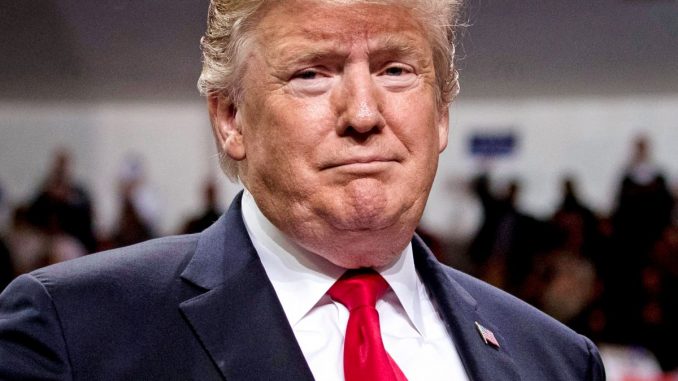
While insiders in Washington, particularly of the Donkey brand, love to brandish the tired old mantra of Russian interference in America's political theatre, a document from the Transition Integrity Project or TIP shows who is really showing potential for interfering in America's growingly fractured and fractious political landscape.
The Transition Integrity Project is a group that you have not likely heard anything about. TIP is made up of a group of Democratic Party insiders and former Obama and Clinton era officials as well as a selection of disgruntled neoconservative Republicans. TIP was created in late 2019 by Rosa Brooks and Nils Gilman. Rosa Brooks was an advisor to the Hillary Clinton State Department and was previously the general counsel to the President of the Open Society Institute, part of George Soros' Open Societies Foundations as shown here:
The current director of TIP is Zoe Hudson, former serving as senior policy analysis at the Open Society Foundation where she also played the role of liaison between the U.S. federal government and the foundation as shown here:
While we only know the identities of a few members of TIP, many members remain anonymous other than David Frum, William Kristol, Donna Brazile, John Podesta and Chuck Hagel.
Members of TIP met in June 2020 to conduct a series of four "war games" which simulated the eleven week period between the November 3, 2020 Election Day and the January 20, 2021 Inauguration Day under various scenarios.
Here is the lead page of the "Preventing a Disrupted Presidential Election and Transition" document:
In the four exercises, participants noted the following as an overriding concern and reasoning for the necessity of holding such a simulation:
"We assess with a high degree of likelihood that November’s elections will be marked by a chaotic legal and political landscape. We also assess that the President Trump is likely to contest the result by both legal and extra-legal means, in an attempt to hold onto power. Recent events, including the President’s own unwillingness to commit to abiding by the results of the election, the Attorney General’s embrace of the President’s groundless electoral fraud claims, and the unprecedented deployment of federal agents to put down leftwing protests, underscore the extreme lengths to which President Trump may be willing to go in order to stay in office."
TIP felt it necessary to examine the following unknowns:
1.) How far might candidates go in contesting negative electoral outcomes or disrupting the normal transition process?
2.) How well would American institutions hold up if one or both candidates refused to play by the rules.
Each exercise involved seven teams consisting of 2 to 3 people as follows:
1.) Trump campaign team
2.) Biden campaign team
3.) Republican elected officials
4.) Democratic elected officials
5.) Career military and civilian federal government employees as well as political appointees
6.) Media – right wing, left wing and mainstream
7.) Public – consisted of polling experts
Here are the four game scenarios:
In case you are interested in more details, here is a detailed outline of each of the four game scenarios:
Here are the top-line findings of the exercises:
1.) Campaign decisions about whether to contest the election are likely to be political calcula- tions, rather than calculations based on legal rules alone.
2.) A close and contested election may be resolved through the exercise of power, not through the courts.
3.) As an incumbent unbounded by norms, President Trump has a huge advantage.
4.) A show of numbers in the streets- and actions in the streets- may be decisive factors in de-
termining what the public perceives as a just and legitimate outcome.
5.) Trump is likely to prioritize his personal interests in the transition period.
Let's focus on point five. Here are some quotes from TIP's report about how Donald Trump will handle a contested electoral result:
1.) Take the money and run. Participants in the scenario exercises universally believed that self- preservation for President Trump and his family will be Trump’s first and possibly only priority if he is forced to concede electoral defeat. Before he leaves office he might maximize the flow of federal money into Trump businesses (moves played: direct COVID-19 relief package for Trump hotels; relocate to Mar-a-Lago for the final months of his presidency); negotiate business deals with foreign countries; and purge documents that might incriminate foreign governments and business partners (for example, documents related to Jamal Khashoggi’s murder). President Trump could also launch his next business venture from the White House (speculations include “MAGA TV,” possibly headed by Trump’s son-in-law Jared Kushner
2.) Pardon everyone. In almost every TIP scenario, Team Trump executed or prepared for the par-dons of relatives, campaign associates, and himself. Players took different approaches in each of the scenarios; in one scenario Trump resigned on January 19, 2021, trusting that Pence would sign the pardons. In another scenario, Trump executed his own pardon. In the debrief, participants noted that the pardons could be challenged only after he leaves office and someone files charges. Even with an expansive understanding of pardon powers, Trump can’t absolve himself of state crimes…He will certainly try to establish the narrative in advance that any efforts to hold him or his allies accountable for wrong-doing and illegality is politically motivated revenge.
3.) Wag the Dog/spark a foreign adventure. There was quite a bit of speculation that Trump might himself initiate a foreign crisis shortly after the election or during the transition, perhaps to change the media narrative around a contested election, attempt to rally nationalist feelings to himself, or placate foreign leaders to whom he may feel beholden, such as Vladimir Putin. Some participants noted that in the event of political chaos in the United States, certain US adversaries might be emboldened to act opportunistically, especially if electoral contestation was generating uncertainty about who precisely was acting as Commander in Chief. From a national security perspective, participants expressed concern about US vulnerability during a contested election.
4.) Destroy evidence. In an effort to preserve the President’s legacy and thwart future criminal investigations, Team Trump ordered numerous documents destroyed in several of the exercises. Team Trump also classified many more documents as top secret and expanded the use of non-disclosure agreements.
5.) Disrupt the transition process. In several of the TIP exercises, Team Trump refused to provide clearances or briefings for proposed members of the incoming Biden administration, offering only what is already in the public domain. Team Trump attempted to discredit the transition team (“We’re cooperating, but not with Democrat Antifa agents”). In a debrief, one participant ex- pressed concern that Attorney General Barr could launch a bogus investigation into “terrorist ties” of the Biden transition team in order to justify surveillance, and/or facilitate a false flag operation before the election or when the election is still being contested.
Now, in closing, let's look at TIP's recommendations:
1.) Plan for a contested election. If there is a crisis, events will unfold quickly, and sleep-deprived leaders will be asked to make consequential decisions quickly. Thinking through options now will help to ensure better decisions. Approach this as a political battle, not just a legal battle. In the event of electoral contestation, sustained political mobilization will likely be crucial for ensuring transition integrity. Dedicated staff and resources need to be in place at least through the end of January.
2.) Focus on readiness in the states, providing political support for a complete and accurate count. Governors, Secretaries of State, Attorneys General and Legislatures can communicate and rein- force laws and norms and be ready to confront irregularities. Election officials will need political and public support to see the process through to completion.
3.) Address the two biggest threats head on: lies about “voter fraud” and escalating violence. Voting fraud is virtually non-existent, but Trump lies about it to create a narrative designed to politically mobilize his base and to create the basis for contesting the results should he lose. The potential for violent conflict is high, particularly since Trump encourages his supporters to take up arms.
4.) Anticipate a rocky administrative transition. Transition teams will likely need to do two things simultaneously: defend against Trump’s reckless actions on his way out of office; and find creative solutions to ensure landing teams are able to access the information and resources they need to begin to prepare for governing.
What I find particularly interesting about this document is that even if Donald Trump clearly wins the election, this group of Obama-administration linked individuals is willing to take extreme measures to ensure a Biden win as quoted here:
"The Biden Campaign encouraged Western states, particularly California but also Oregon and Washington, and collectively known as “Cascadia,” to secede from the Union unless Congres- sional Republicans agreed to a set of structural reforms to fix our democratic system to ensure majority rule. With advice from President Obama, the Biden Campaign submitted a proposal to 1) Give statehood to Washington, DC and Puerto Rico; 2) Divide California into five states to more accurately represent its population in the Senate; 3) Require Supreme Court justices to retire at 70; and 4) Eliminate the Electoral College, to ensure that the candidate who wins to the popular vote becomes President….
One of the most consequential moves was that Team Biden on January 6 provoked a breakdown in the joint session of Congress by getting the House of Representatives to agree to award the presidency to Biden (based on the alternative pro-Biden submissions sent by pro-Biden governors)."
And here we all thought that Russia was the "bogeyman in the closet" when it came to interfering in the will of American voters. What should be of concern to all American voters is the presence of more than one of George Soros insiders among the leaders of the rather ironically named Transition Integrity Project, particularly given Soros close links to Hillary Clinton as shown here (thanks to WikiLeaks):
Click HERE to read more from this author.
You can publish this article on your website as long as you provide a link back to this page.

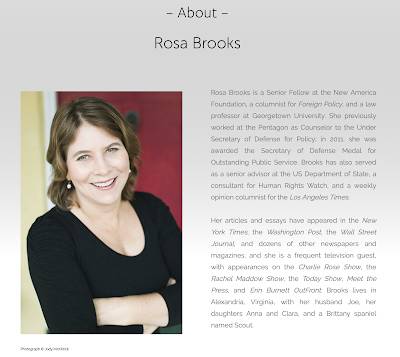
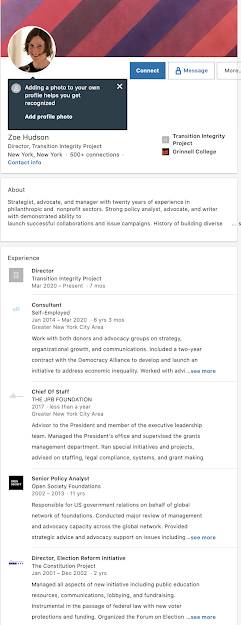
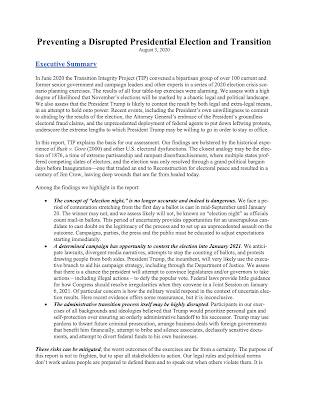
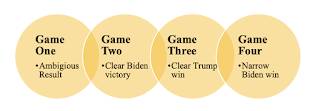
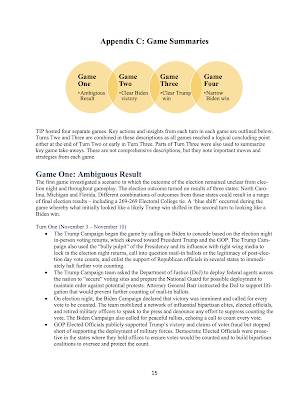
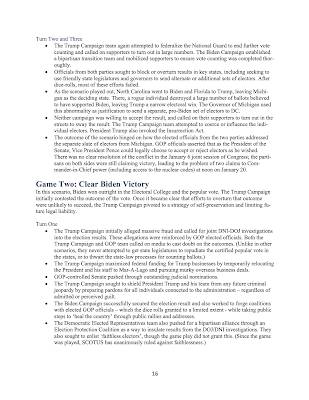
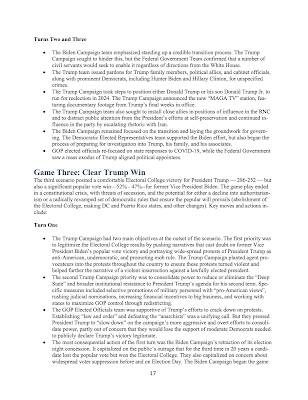
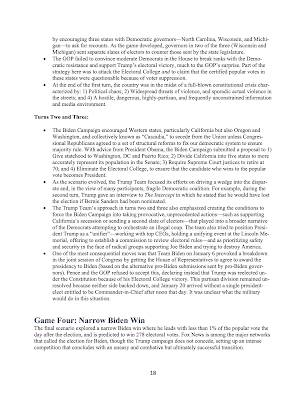
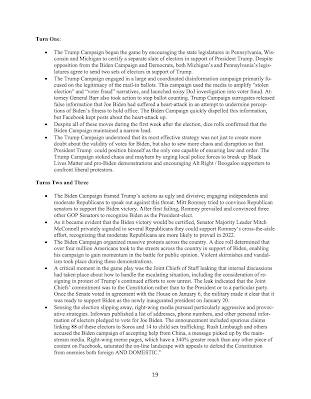
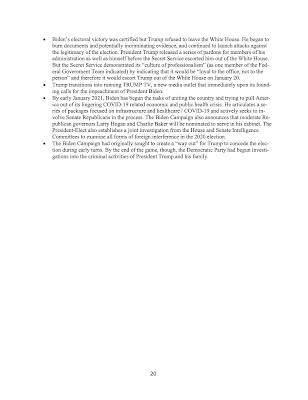
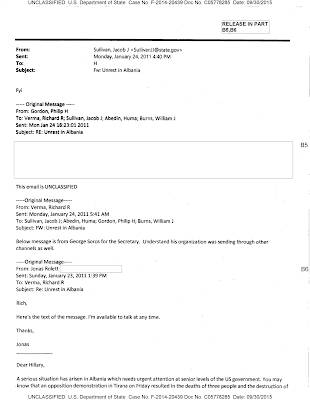
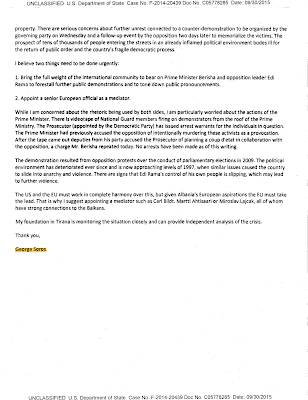
Be the first to comment